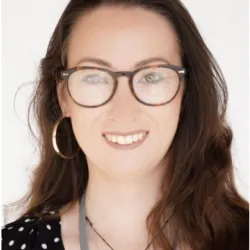RSAA Seminar: Dr Fiona Panther (UWA)
How we can learn more about the astrophysics of the most extreme neutron stars and how hierarchical models can be applied to gain both potentially fascinating and statistically robust insights into the compact object population detected via gravitational wave emission.
Speakers
Content navigation
Description

Since the watershed discovery of GW170817 - a binary neutron star merger with a definitive electromagnetic counterpart - there has been a great deal of hope that similar gravitational wave events identified by the LIGO-Virgo-KAGRA experiments would yield similar exciting discoveries. Since 2017, only one more binary neutron star merger has been identified: GW190425. Using this example, we will study the process of gravitational wave detection: from candidate identification to localization to astrophysical implications, and how we associate GW events with EM counterparts. I'll delve into how we can learn more about the astrophysics of the most extreme neutron stars. I will show how hierarchical models can be applied to gain both potentially fascinating and statistically robust insights into the compact object population detected via gravitational wave emission.
Location
Duffield Lecture Theatre
